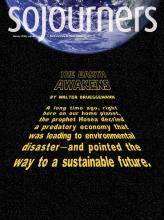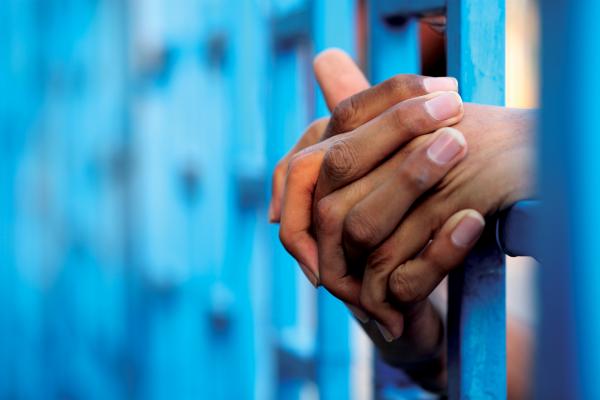EARLY ONE SUNDAY MORNING, I drive to the Durham Correctional Center to pick up Greg. He’s spent the past 16 months at a state prison down east, working overtime in the kitchen so he could get out six weeks early. A few days ago, the Department of Corrections transferred him to this local minimum-security facility. Greg knows the place well. He’s walked out of here more times than he can count.
“Feel good to be out?” I ask as we walk through the gate of the chain-link fence, nodding goodbye to the guards. “You know it does,” Greg says, his back straight and his eyes fixed on the horizon. He’s relishing this taste of freedom.
But Greg knows this pleasure is fleeting. As good as it might feel to walk through the gate and hop in a car, leaving prison doesn’t mean you get to leave this part of your life behind.
According to the Prison Policy Initiative, more than 2.4 million Americans are locked behind bars (and 12 million cycle through local jails each year). At any given time, some 6 million Americans are caught up in the criminal justice system—if not behind bars, then checking in with a parole officer who can carry them back to jail for the smallest of transgressions. Like Greg, a disproportionate number of those impacted by the U.S. criminal justice system are African American.
Even if you walk out of the gate like Greg, time served, you still have to deal with the debts that ruined your credit while you were locked away. You still have to rebuild relationships that were cut off because you spent the past decade behind bars. You still have to check the box on almost every job application that says you’re a convicted felon.
I live in a home named Rutba House, where we have opened our doors to friends like Greg who are coming home from prison. Doing so has helped me see that our country’s original sin of race-based slavery has shifted its shape again in the 21st century. As the Black Lives Matter movement has tried to make clear on America’s streets, race still matters. But in light of the fact that African Americans are incarcerated at nearly six times the rate of whites, we cannot understand race in America today without understanding prisons.
Read the Full Article

